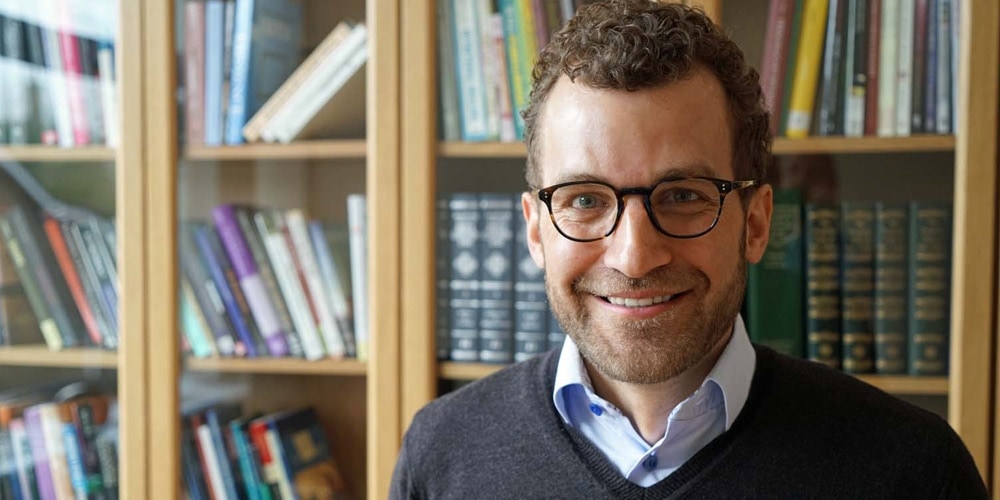
A psychiatrist from Norway with a heart for the outdoors has been elected as Health Ministries associate director for the Seventh-day Adventist world church. Torben Bergland, Trans-European Division Health Ministries director, was tapped for his new role during Spring Meetings at the denomination headquarters in Silver Spring, Maryland, United States, on April 11, 2018. He will replace Fred Hardinge, who retires this summer.
Bergland, a native of Norway who loves skiing, climbing, biking, and running, has fulfilled a strategic priority for the TED since his election in November 2015, focusing on mental health issues and tirelessly providing training. Currently, he is developing Mindwell, a substantial online program teaching mental health awareness.
Supported by world church partners, including the TED, Bergland plans to continue with this initiative.
He states, “I see so much potential for our church to have a positive impact in the world through Health Ministries. I believe we are called to be a superpower for health in the world, to bring healing and relief from brokenness and pain in a world plagued by sin and evil.”
While it was never his plan to work for the church at any level, he says, “I am committed to a life of service striving to have a positive impact wherever I go through whatever I do. I am honored and humbled by being called by God’s church to serve in this way.”
A Committed Psychiatrist
Bergland combines the skills of a medical doctor and psychiatrist with his strong commitment to the church. He graduated from Medical School at Copenhagen University in 2002. After internships in surgery, medicine and family medicine, he went into psychiatry, and is a trained psychiatrist and psychotherapist. Much of his career he worked at Modum Bad in Norway, a leading hospital in psychotherapy treatment, as both psychotherapist and departmental leader. He has primarily worked with patients with depression, anxiety and personality disorders.
In 2015, he made a conscious choice to take a career break from the Norwegian health service to work with Adventist Health Ministries leaders across the TED.
“For the TED it was a first,” reminds TED president Raafat Kamal. “Electing a full-time Health Ministries director who could add this important mental health focus to the more traditional Adventist areas of health was very intentional and has paid dividends.”
For Bergland, those dividends were not just for those he worked with. “I hope and believe all the people I have had the privilege of meeting, presenting to and building relationships with have been enriched as I have been by our interactions,” he said.
Bergland adds, “one of the main priorities for me has been to support the Health Ministries directors in the union church regions across the TED, and I greatly appreciate their work and commitment.” It is something that included collaborating in partnership with Family Ministries and the Ministerial Association, and it led to substantial research and work in the areas of ministerial burnout and mentoring in ministry.
“The needs are great and urgent, and much work remains to be done,” he says. “I am happy that awareness has been raised, and that thinking and practices have been challenged. I hope attention will continue to be given to these issues on all levels and in all entities.
Mental Health and Mission
Thanking Bergland for his service in the TED, Kamal says, “I have seen how positive mental health affects our emotional, psychological, and social well-being,” noting the positive effect this can have on mission and evangelism.
“It affects how we think, feel, and act. It also helps determine how we handle stress, relate to others, and make choices,” Kamal adds. “Mental health is important at every stage of life, from childhood and adolescence through adulthood.”
While sorry to lose Bergland, Kamal is pleased that the initiatives the TED started can now expand on a global scale. “Bergland’s dedication to the task, professionalism and balanced approach to health ministries and love for the church and its mission will undoubtedly benefit the world church,” he concluded.
It is also Bergland’s view.
“My plans and projects, especially in mental health, have taken on a global perspective,” he says. “To provide the TED with the tools we need to work well and effectively, it soon became clear to me that we must seek partnerships and funding beyond what we have within our territory.”
A major project that has grown out of Bergland’s plans is MindWell, an innovative mental health program that will be released globally within the next couple of years. “I believe many will be reached, helped and blessed through this program,” says Bergland. “I believe that the world church Health Ministries will be a good platform for furthering this work.”
The burden of mental disorders continues to grow with significant impacts on health and major social, and economic consequences in all countries of the world. The World Health Organization (WHO) claims that one in four people in the world will be affected by mental or neurological disorders at some point in their lives. Around 450 million people currently suffer from such conditions, placing mental disorders among the leading causes of ill-health and disability worldwide. Depression will be the second leading cause of disease by 2020 according to the WHO.
The balanced biblical principles of social, mental, physical and spiritual health make up the Seventh-day Adventist holistic approach to health. Church leaders expect this renewed focus may help church members, pastors, and interests alike. “Enhancing the mental health focus at world church level will undoubtedly benefit mission,” they said.